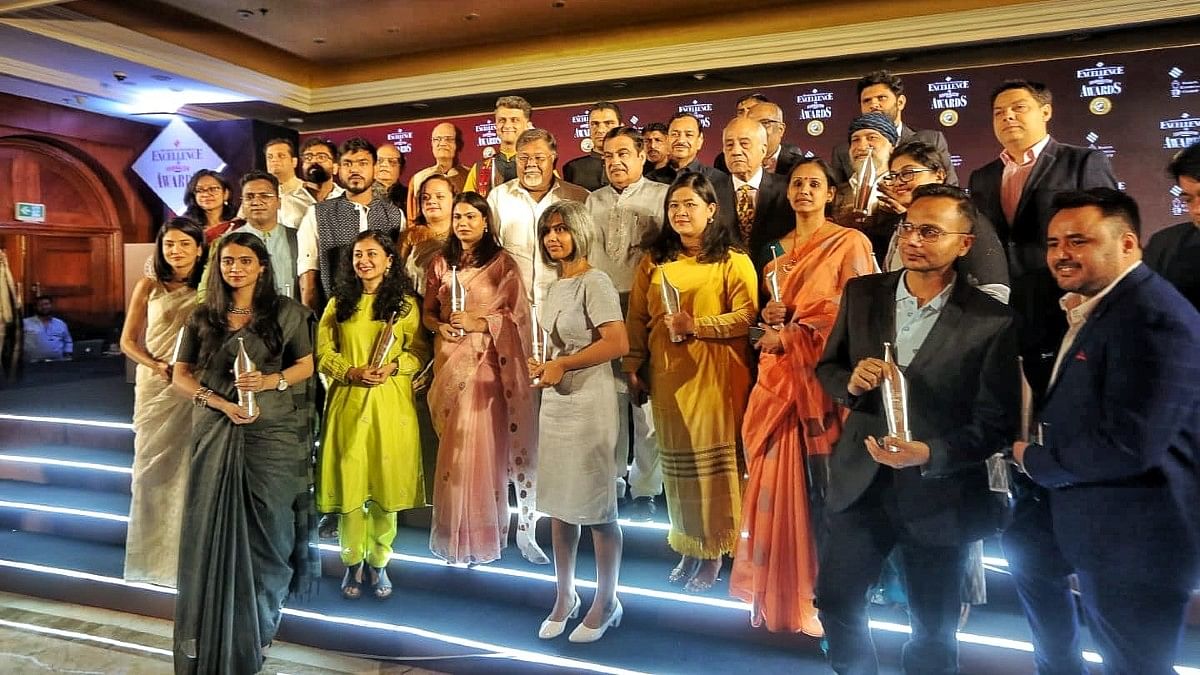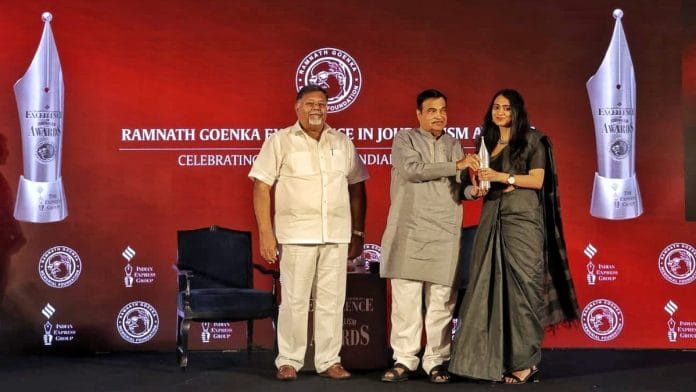New Delhi: Forty-three awards were conferred on journalists from newsrooms across India recognised for their exceptional coverage of issues at the 17th edition of the Ramnath Goenka Excellence in Journalism Awards held here Tuesday.
Among them was Vandana Menon, an Assistant Editor with ThePrint, who received the award for her 2021 report on how an engineer with the South Delhi Municipal Corporation (SDMC) arrived at a conclusion about the burial spot of Shah Jahan’s son Dara Shikoh and how his theory was received by experts and academics looking for the answer to this question.
The award was conferred under the ‘feature writing’ category.
“I want to say something about how the quest for Dara Shikoh’s grave is important in this day and age because of the syncretism he represents — especially as many are wringing the death knell for syncretism in India today,” Menon said after receiving the award.
Earlier, in his welcome address, Viveck Goenka, Chairman and Managing Director of The Indian Express Group, said the Ramnath Goenka awards are important “because journalism is now being shaped and reshaped by forces that are the most disruptive we have seen in generations”.
He identified the impact of AI on newsrooms as one such force and “structural changes due to political and social divides and the growing tendency of the audience to stay in their echo chambers” as another.
“Good journalism is going where the story takes and not letting how you vote dictate how you report,” he added.
The Ramnath Goenka Excellence in Journalism Awards celebrate the legacy of the late Ramnath Goenka, founder of The Indian Express Group. The awards are conferred in categories ranging from print, digital and broadcast media, investigative, political and sports journalism, to books, feature writing and reporting in regional languages.
This latest edition of the awards honoured the work of journalists across 2021 and 2022, their stories revolving around the functioning of the Election Commission (EC), the plight of women in Kerala’s jails, how tech giants undercut small businesses and the impact of the Russian invasion of Ukraine on Indian Railways, among others.

Union Minister Nitin Gadkari, who attended the awards ceremony as chief guest, said the awards were symbolic of those who choose “ethics over convenience”.
Reminiscing about the Emergency, Gadkari added how the two years between 1975 and 1977 shaped history. “I would not have been in politics, if not for the Emergency,” the minister said while also elaborating on the role Ramnath Goenka played during the Emergency.
Gadkari also said that both journalists and politicians are often at a crossroads “between ethics and convenience”.
Stressing how democracy is sustained by the four pillars which includes the media, he said that a journalist’s job is not merely to provide information but to provide knowledge by converting “waste to wealth”.
“Difference of opinion is not a problem for us as a growing democracy, the problem is complete absence of any opinion. People are neither Rightist, nor Leftists, but we are opportunists — this is a massive problem,” he said.
Raj Kamal Jha, Chief Editor, The Indian Express, spoke in his concluding note about challenges to the freedom of the press in India. “There is an ease of doing business and there is a specific unease of doing journalism.”
Also Read: ThePrint gets IPI Award for Excellence in Journalism 2022 for in-depth coverage of Covid






